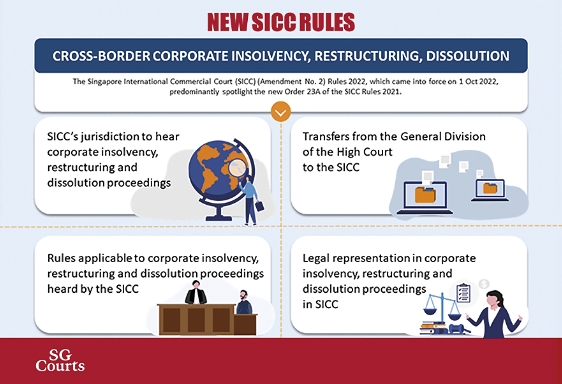A bespoke standalone set of procedural rules, the Singapore International Commercial Court (SICC)
Rules 2021 are a gamechanger in the international dispute resolution landscape. They enhance
the dispute resolution process in the SICC, with new procedures aimed at the expeditious and
efficient administration of justice according to international commercial law, while providing for
procedural flexibility through fair, impartial and practical processes. They contain novel features to
streamline procedural steps and increase procedural flexibility. This ensures that the SICC remains
progressive and has procedures compatible with, and responsive to, the fast-changing needs and
realities of international commerce.
The SICC (Amendment No. 2) Rules 2022, which came into operation on 1 October 2022, introduce
new processes in the SICC for cross-border corporate insolvency, restructuring and dissolution
proceedings. These changes mark a positive development for Singapore with respect to the
broader region’s restructuring and insolvency landscape. The SICC, with its robust framework for
international dispute resolution, is well placed to further strengthen Singapore’s capability to serve
as a preferred nodal jurisdiction in coordinating and dealing with cross-border restructuring and
insolvency matters.





